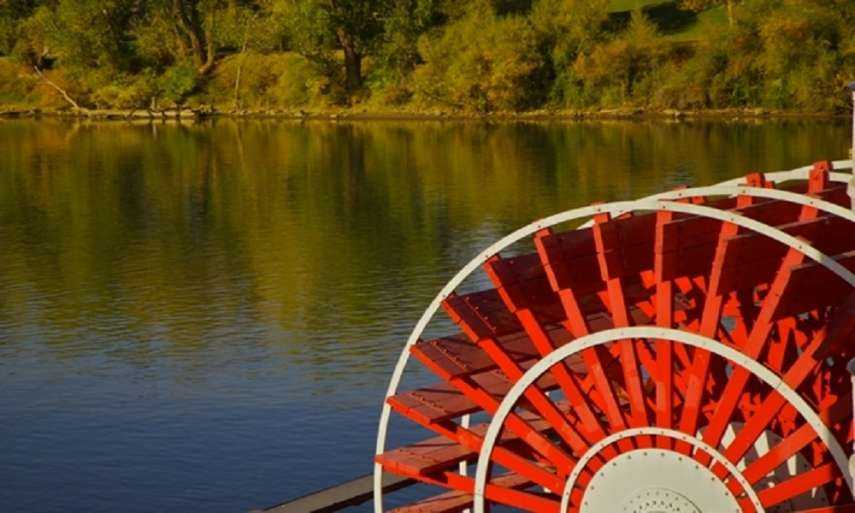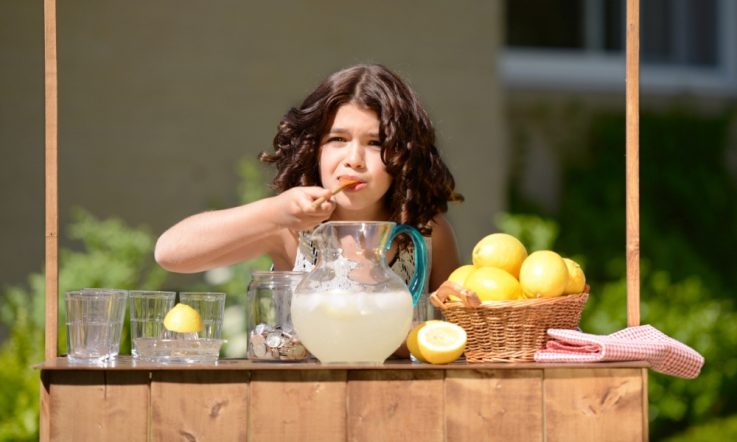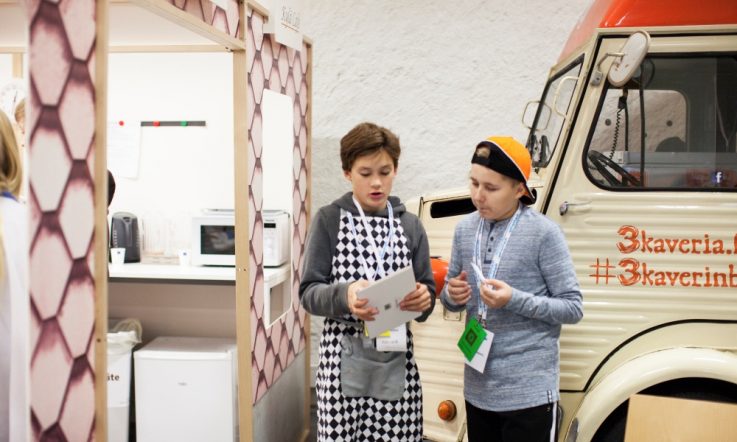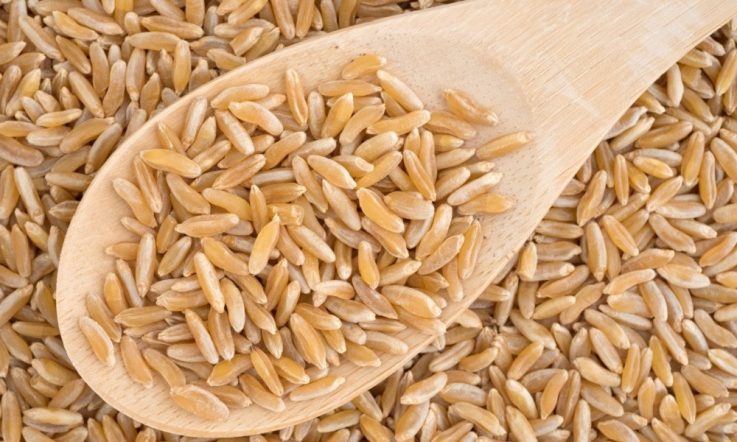Each week the paddle steamer Proud Mary cruises into Mypolonga on South Australia's Murray River, carrying potential customers for the local primary school shop.
If you're picturing a modest stall, staffed by adults, think again. This is a flourishing student-run enterprise that is not only providing opportunities for youngsters to learn real life maths skills, it's also generating an annual turnover of $18 000.
Earlier this year, the first large-scale international study to assess the financial literacy of 15-year-old students showed, overall, Australian teenagers performed very well (Thomson, 2014).
The Mypolonga Primary School shop is an example of how maths and financial literacy skills can be delivered to much younger students in a practical way.
All the products for sale are made by Reception to Year 7 students - items include recipe books and chocolate apricots - or outsourced from the community. The shop takes a 20 per cent commission.
'The kids manage all of that money,' Principal Rita O'Brien says. 'They have to work out the commission ... all our calculations are mental because we really want our kids to see the connections between numbers. So, it's authentic use of the maths curriculum.'
She points out that the successful program has been built up over an 18 year period and the challenge is to keep improving. 'You just can't keep saying "We'll stay the same", she tells Teacher. 'What we've found is, as the kids become more financially literate, you actually have to raise the bar and continue evolving.
'One of the things I say to people when they come [to look at the program] is we didn't start off like this. We started off very humbly and in 18 years this is where we've come - I wouldn't expect anyone to now come in and say "wow, I can start this tomorrow".'
Enterprise focus
The school shop was originally based at a disused post office across the road and only sold student crafts. O'Brien, who was a teacher at the time, says 'everything locked into place' once the Proud Mary came on board.
'Once they added the school to the [cruise] itinerary that's when I thought "this is workable, but the focus has to be about business, not craft".'
She also wanted to ensure every student was involved. '[I thought] how can you make it work so that every kid is learning, every kid is engaged and every kid achieves an outcome, and how do you know they've achieved an outcome?
'I came up with a plan where, every week, each student rotated through a different job ... chocolate coating the apricots, bagging the apricots, working on the outside counter, working on the inside counter ... so we had to come up with about 15 rotations.
'Also, I thought there needs to be some way of the kids demonstrating to the tourists what they're learning too. So, we set up the Reconciliation Board - that's where two kids explain every week to the tourists how we balance the books, and we have a map where people show us where they come from and send us a postcard when they get home.'
The next step was to document all the processes involved in each task rotation, including the related skills. Students mentor and assess each other. Collecting five 'excellent' ratings earns a badge.
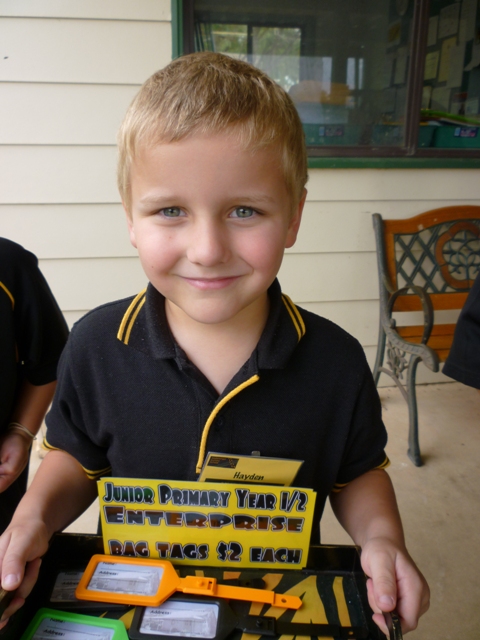
The enterprise provides opportunities for students to learn real life maths skills. [Image:Supplied]
'It goes through to 25 [when] they get a badge with their name on and it that says Quality Assurance,' O'Brien explains. 'When you've achieved that, you're then able to assess other children.'
One of the reasons the shop is flourishing is the commitment of staff, students and parents. It opens every Friday, including school holidays and public holidays. Christmas is the only break in trading.
'The last Friday of school holidays, we not only had 30 children turn up in school uniform with their parents - half of our school lives in Murray Bridge [about 20 kilometres away], so the parents drive them out - but even more impressive, I think, was the fact six high school students who no longer come here turned up in their primary school uniforms to work. That's pretty amazing.'
O'Brien says the regional school currently has more students from Murray Bridge than Mypolonga. 'That's because a lot of the Mypolonga young people are not coming back because of the downturn in the fruit and dairy industry. What's happening is people in Murray Bridge want the experience that things like the school shop gives them, and they love that enterprise focus.'
Powerful learners
After building in the Quality Assurance system, the program went through more 'incarnations', offering a Certificate of Business Leadership and a Certificate of Retail for a few years.
'We realised that ... a lot of the onus was on students getting their own evidence. [That] was a bit hard for some with learning difficulties, so we've re-evaluated that too. We now do a Certificate of Financial Management and that is very much around all of the processes you need in place to balance the books.
'So, you need to work out the commission, what you're going to pay each consignor, you need to understand the literacy of all of the language that's involved, then we need to be able to calculate turnover and profit, and also how we're going to spend our profit.
'We have two separate profit lines - each class makes a profit, then the school shop itself. The school shop committee, which is totally student-run, decides how the money is spent. Classes or teachers will write submissions and the students decide ...
'Now the third step on, we're looking at: What makes a powerful learner?, What makes an entrepreneur?, and What qualities do employers look for when kids leave school? What are the graduate attributes and capabilities?
'[We've] got a hard cover book the kids use to collect evidence that they have [demonstrated] those qualities. We realised our next step is to design an app rather than having a hard copy.'
The school has also been shortlisted for a Financial Literacy Australia grant to develop resources for other educators and document the history of the shop and the lessons learned.
Learning outcomes
Offering advice on where to start with a school shop, O'Brien says a very important part of the process is to ask 'What is the purpose of this program?'.
'It sounds like that should be easy to do, but we really had to challenge ourselves and say "What do we want to get out of this?" and identify and link it to [the curriculum]. All of that takes a lot of thinking.
'We had no idea when we started that we'd still be here 18 years later and that it would have such an impact on student achievement. No child has made low progress from Year 5 to Year 7 since NAPLAN started. That's a really clear outcome.
'The outcome we hadn't factored in was around students being able to communicate with adults. Even to the point where ... the teacher has talked about what a good handshake is and how to do it. Nothing is left to chance.
'Now we have a Business and Economics curriculum that's coming in next year. And so, from Year 5 on there will be an expectation that all schools will participate in Business and Economics. I've looked at the curriculum and it's very similar to what we've already established.'
References
Thomson, S. (2014). Financing the future: Australian students’ results in PISA 2012 Financial Literacy assessment. Camberwell: ACER. Retrieved from {filedir_1}PISA_2012_Financial_Literacy.pdf (PDF, 2.1MB)
Visit the Mypolonga Primary School website to watch a video about its successful student shop.
To find out more about the financial literacy and spending behaviour of Australian students, take a look at this Teacher infographic.
